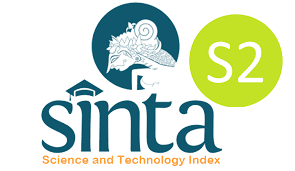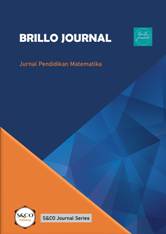Achievement and Improvement of Junior High School Students' Numeracy Skills through a Realistic Mathematics Education Approach
DOI:
https://doi.org/10.56773/bj.v4i2.74Keywords:
Achievement, Improvement, Numeracy skill, Realistic mathematics educationAbstract
The results of a survey conducted by PISA show that the achievement of students' numeracy skills in Indonesia is relatively low, with many students having difficulty applying basic mathematical concepts in everyday life. This condition requires 21st-century learning to not only focus on mastering content, but also on developing numeracy skills that are integrated into various subjects. Therefore, this study was conducted to determine the achievement and improvement of numeracy skills of grade VIII junior high school (JHS) students through the realistic mathematics education (RME) approach. The research method used is a quantitative method with a quasi-experimental research type, which was conducted at a junior high school in North Central Timor Regency. The instrument used was a numeracy ability test sheet. The data obtained were analyzed using the t-test. The results of the study showed that the achievement and improvement of numeracy skills of grade VIII junior high school students who studied through RME approach were higher than students who studied without the RME approach. Specifically, students taught with the RME approach showed better understanding in solving contextual problems and applying mathematical concepts, and experienced a more significant increase in scores between the pretest and posttest. It is recommended for junior high school mathematics teachers to implement RME to facilitate students' numeracy skills. It is recommended for junior high school mathematics teachers to implement RME to facilitate students' numeracy skills.
References
Diva, S. A., Khafidin, D., & Ulya, H. (2022). Application of IRME with HOTS questions to improve numeracy literacy competency in minimum competency assessment. In Prosiding Seminar Nasional Pendidikan Matematika (SNAPMAT) (pp. 138-148).
Ekowati, D. W., Azzahra, F. Z., Saputra, S. Y., & Suwandayani, B. I. (2021). Realistic mathematics education (RME) approach for primary school students' reasoning ability. Jurnal Premiere Educandum, 11(2), 269-279. http://dx.doi.org/10.25273/pe.v11i2.83
Hadi, S., & Zaidah, A. (2021). Analisa Kemampuan Literasi Numerasi dan Self-Efficacy Siswa Madrasah dalam Pembelajaran Matematika Realistik. Jurnal Ilmiah Wahana Pendidikan, 7(7), 300-310. https://doi.org/10.5281/zenodo.5716119
Hastjarjo, T. D. (2019). Rancangan Eksperimen-Kuasi. Buletin Psikologi, 27(2), 187–203. https://doi.org/10.22146/buletinpsikologi.38619
Heuston, B. (2022). Handbook of Research on Innovative Approaches to Early Childhood Development and School Readiness. IGI Global Scientific Publishing. https://doi.org/10.4018/978-1-7998-8649-5.ch026
Fauzan, H., & Anshari, K. (2024). Studi literatur: Peran pembelajaran matematika dalam pembentukan karakter siswa. Jurnal Riset Rumpun Ilmu Pendidikan, 3(1), 163-175. https://doi.org/10.55606/jurripen.v3i1.2802
Febriana, R. (2021). The Application of the RME Approach to Improve Students' Mathematical Concepts Understanding. Tarbawi: Jurnal Ilmu Pendidikan, 17(2), 118-125. https://doi.org/10.32939/tarbawi.v17i2.1006
KEMENDIKBUD. (2019). Panduan Gerakan Literasi Sekolah di Sekolah Dasar Edisi 2. KEMENDIKBUD
Laurens, T., Batlolona, F. A., Batlolona, J. R., & Leasa, M. (2017). How does realistic mathematics education (RME) improve students’ mathematics cognitive achievement?. Eurasia Journal of Mathematics, Science and Technology Education, 14(2), 569-578. https://doi.org/10.12973/ejmste/76959
Machromah, I. U., Utami, N. S., Setyaningsih, R., Mardhiyana, D., & Fatmawati, L. W. S. (2021). Minimum Competency Assessment: Designing Tasks to Support Students' Numeracy. Turkish Journal of Computer and Mathematics Education, 12(14), 3268-3277.
Maslihah, S., Waluya, S. B., Karomah, N., & Iqbal, K. (2021, June). Increasing mathematical literacy ability and learning independence through problem-based learning model with realistic mathematic education approach. Journal of Physics: Conference Series, 1918(4), 042123. https://doi.org/10.1088/1742-6596/1918/4/042123
Marpaung, B. A. (2024). Pengaruh Pembelajaran Matematika Realistik (RME) terhadap Kemampuan Literasi Numerasi Siswa SMP Kelas VII. Indonesian Research Journal on Education. 4(4). 439 - 443.
Masruroh, A., M. N. (2023). Pengaruh Pendekatan Pendidikan Matematika Realistik Indonesia (PMRI) Terhadap Kemampuan Literasi Mateamatika Siswa SMP Jakarta Pusat. In Prosiding Seminar Nasional Pendidikan Matematika (Sandika V) (pp. 397-404).
Mostoli, N., Rostamy-Malkhalifeh, M., Shahverani, A., & Behzadi, M. H. (2021). Increasing the Mathematical Literacy Based on the Problem Solving Teaching and Realistic Mathematics. Iranian journal of educational sociology, 4(3), 19-33. https://doi.org/10.52547/ijes.4.3.19
Mutmainah, Y. H., & Suhendar, U. (2023). Perbandingan Pengaruh Pendekatan RME dan Saintifik Terhadap Kemampuan Literasi Numerasi. JNPM (Jurnal Nasional Pendidikan Matematika), 7(1), 35–43. https://doi.org/10.33603/jnpm.v7i1.7426
Natalia, S. (2017). Realistic mathematics education: suatu langkah mendidik berpikir matematis. Jurnal Dinamika Pendidikan, 10(1), 267-282.
Nurjamaludin, M., Gunawan, D., Adireja, R. K., & Alani, N. (2021, July). Realistic Mathematics Education (RME) approach to increase student’s problem solving skill in elementary school. Journal of Physics: Conference Series, 1987(1), 012034. https://doi.org/10.1088/1742-6596/1987/1/012034
OECD. (2019). PISA 2018 Results (Volume I): What Students Know and Can Do. OECD Publishing. https://doi.org/10.1787/5f07c754-en
OECD. (2023). PISA 2022 Results (Volume I): The State of Learning and Equity in Education. OECD Publishing. https://doi.org/10.1787/53f23881-en
Payadnya, I. P. A. A., Suwija, I. K., & Wibawa, K. A. (2021). Analysis of Students' Abilities in Solving Realistic Mathematics Problems Using" What-If"-Ethnomathematics Instruments. Mathematics Teaching Research Journal, 13(4), 131-149.
Putri, A. D. (2023). Pengembangan Bahan Ajar Berbasis Realistic Mathematics Education Untuk Meningkatkan Kemampuan Literasi Matematis Peserta Didik Kelas VII SMP. (Skripsi). Universitas Negeri Padang
Rangkuti, A. N. (2019). Pendidikan Matematika Realistik. Citapustaka Media
Simbolon, A. K., (2023). Peningkatan Kemampuan Literasi Numerasi Siswa Pada Matematika melalui Pendekatan Pendidikan Matematika Realistik Indonesia (PMRI). Nusantara Hasana Journal, 3(7), 113-119.
Son, A. L., Talan, M. R., Mone, F., & Jelahu, R. A. (2023). Profil Kemampuan Literasi Dan Numerasi Siswa Sekolah Menengah Pertama. AKSIOMA: Jurnal Program Studi Pendidikan Matematika, 12(1), 922-932. http://dx.doi.org/10.24127/ajpm.v12i1.6569
Suryati, K., & Krisna, E. D. (2021). Pendekatan Pembelajaran Matematika Realistik (PMR) Berbantuan Telegram untuk Meningkatkan Hasil Belajar Matematika. PENDIPA: Journal of Science Education, 5(3), 479–485.
Susanto, D., Sihombing, S., Radjawane, M. M., & Wardani, A. K. (2021). Inspirasi Pembelajaran yang Menguatkan Numerasi (pada Mata Pelajaran Matematika untuk Jenjang Sekolah Menengah Pertama). Kementerian Pendidikan dan Kebudayaan.
Uyen, B. P., Tong, D. H., Loc, N. P., & Thanh, L. N. P. (2021). The Effectiveness of Applying Realistic Mathematics Education Approach in Teaching Statistics in Grade 7 to Students' Mathematical Skills. Journal of Education and E-Learning Research, 8(2), 185-197.
Yuanita, P., Zulnaidi, H., & Zakaria, E. (2018). The effectiveness of Realistic Mathematics Education approach: The role of mathematical representation as mediator between mathematical belief and problem solving. PloS one, 13(9), e0204847. https://doi.org/10.1371/journal.pone.0204847
Downloads
Published
How to Cite
Issue
Section
License
Copyright (c) 2025 Maria Elisabeth Timo, Aloisius Loka Son, Cecilia Novianti Salsinha

This work is licensed under a Creative Commons Attribution 4.0 International License.
The authors agree that this article remains permanently open access under the terms of the Creative Commons Attribution 4.0 International License





